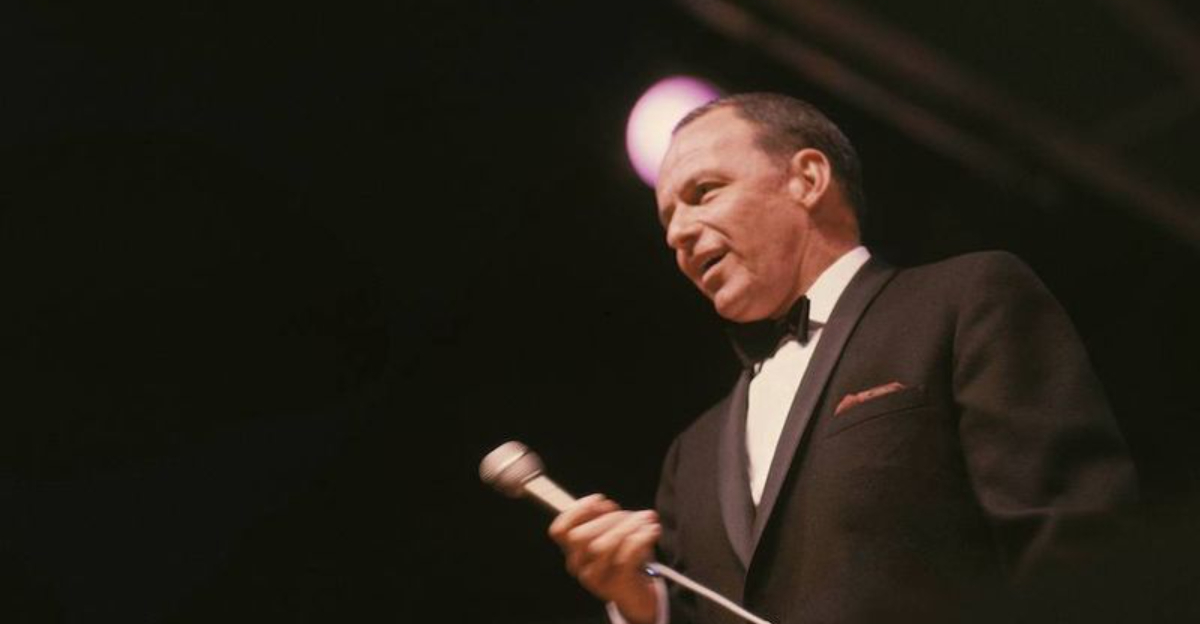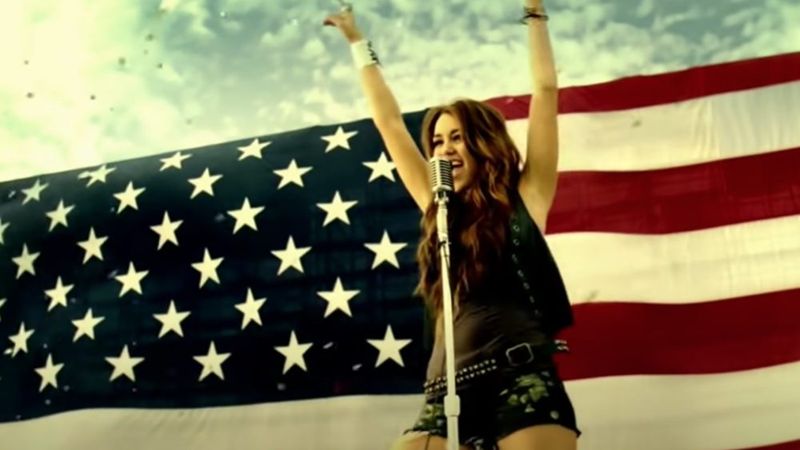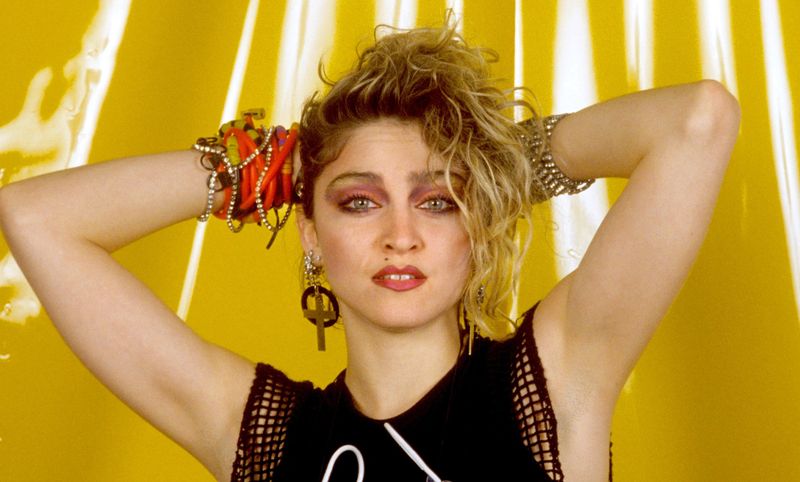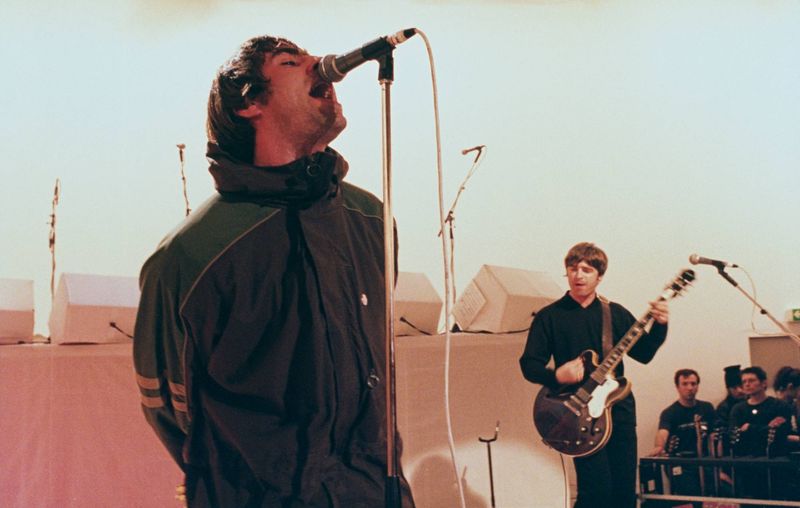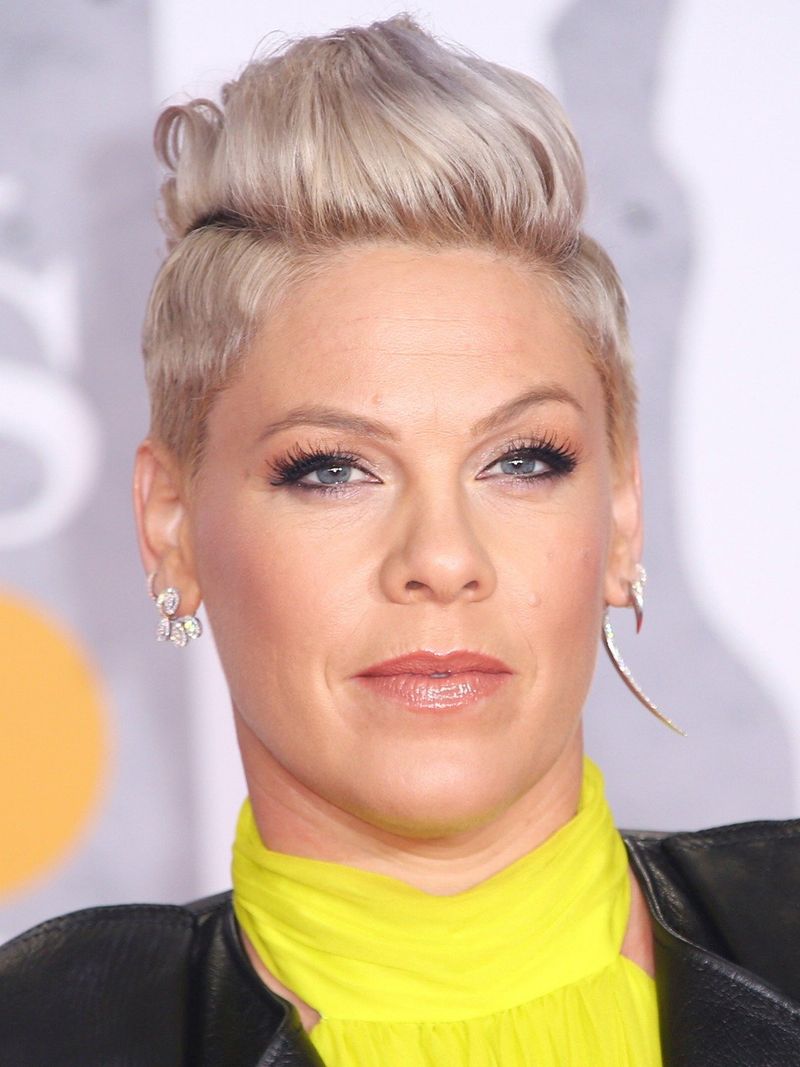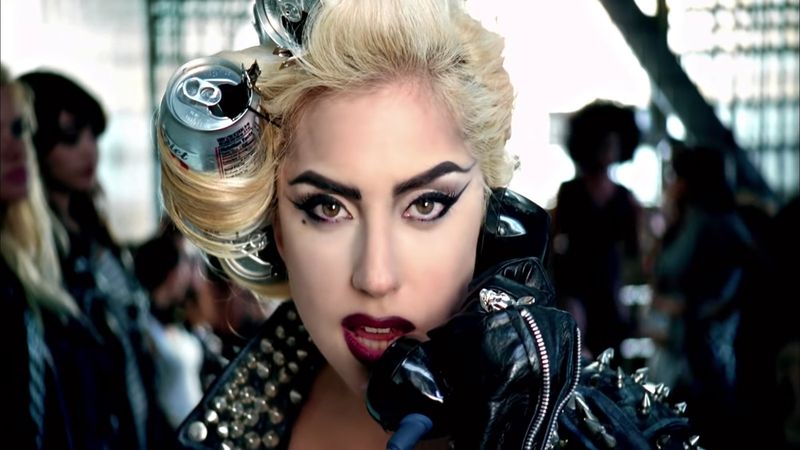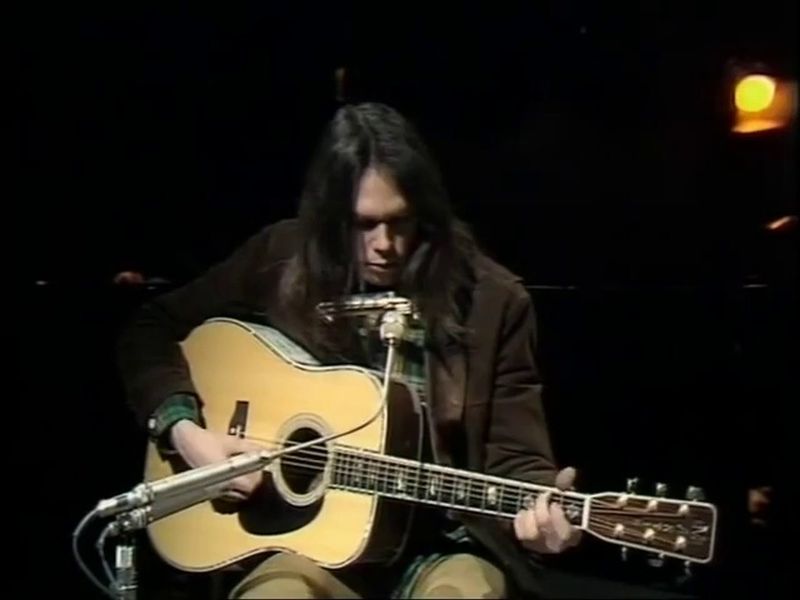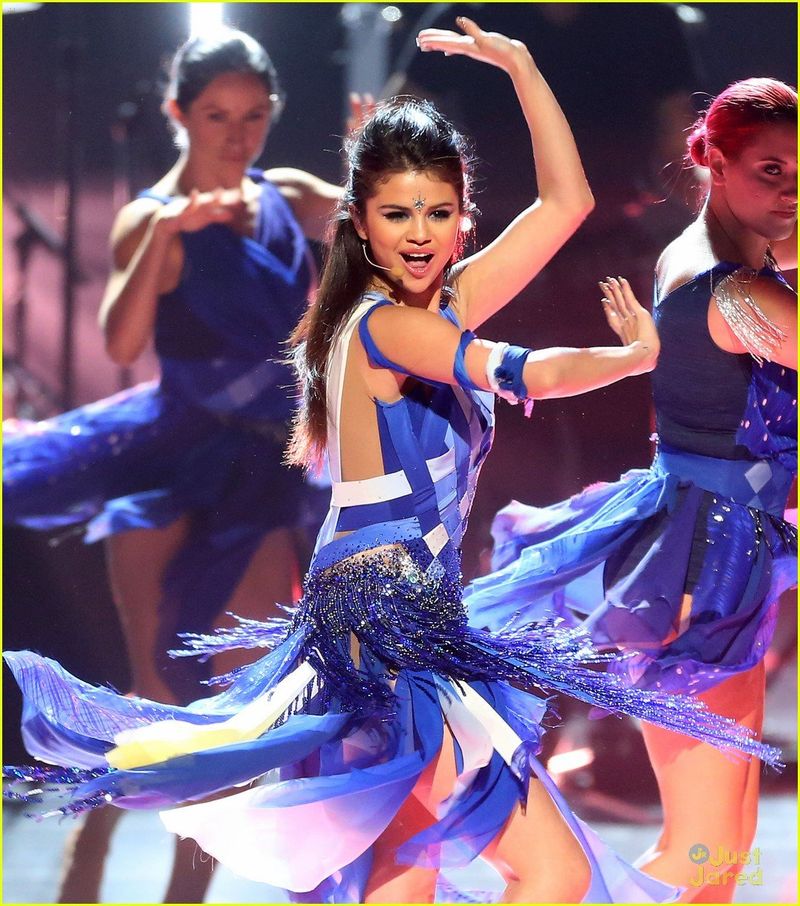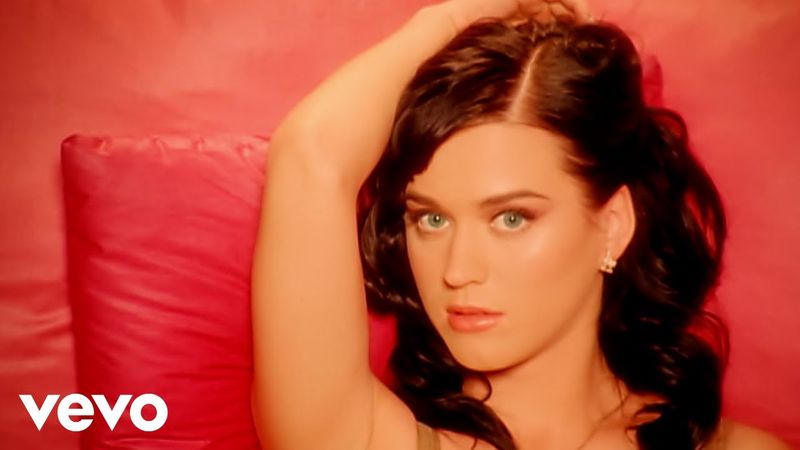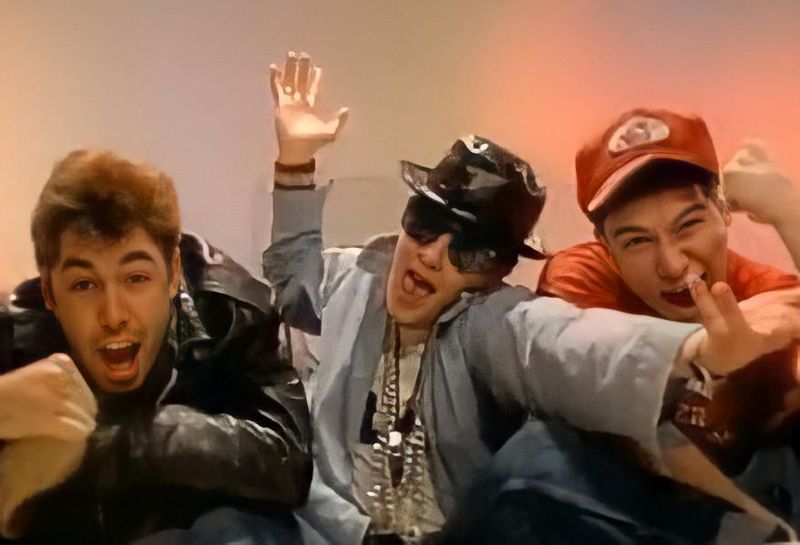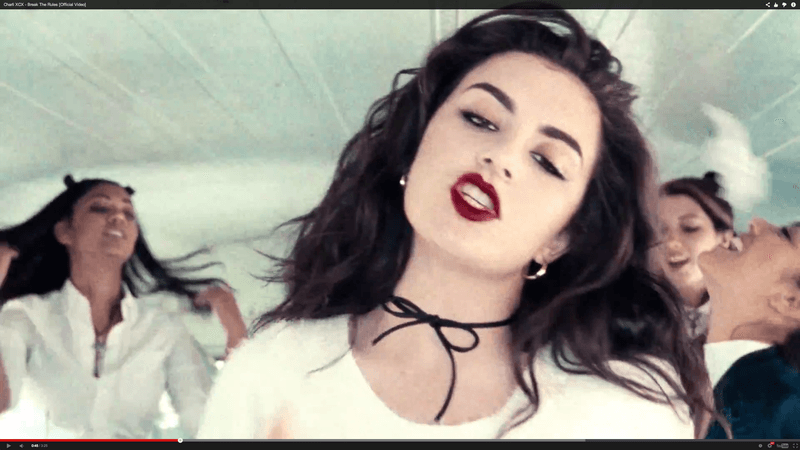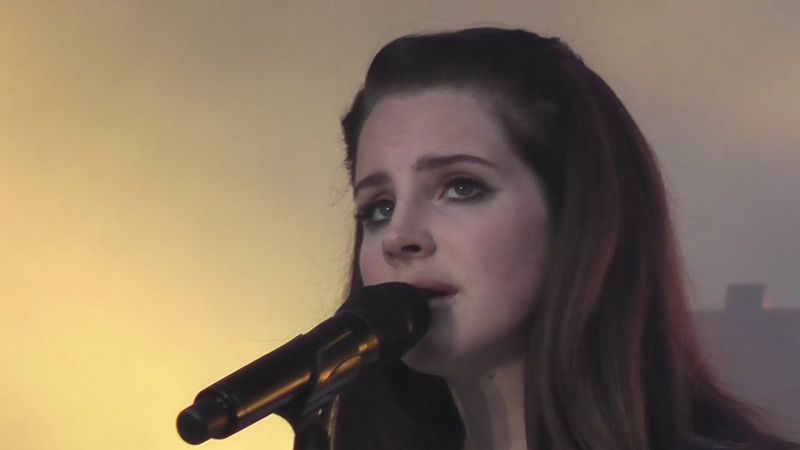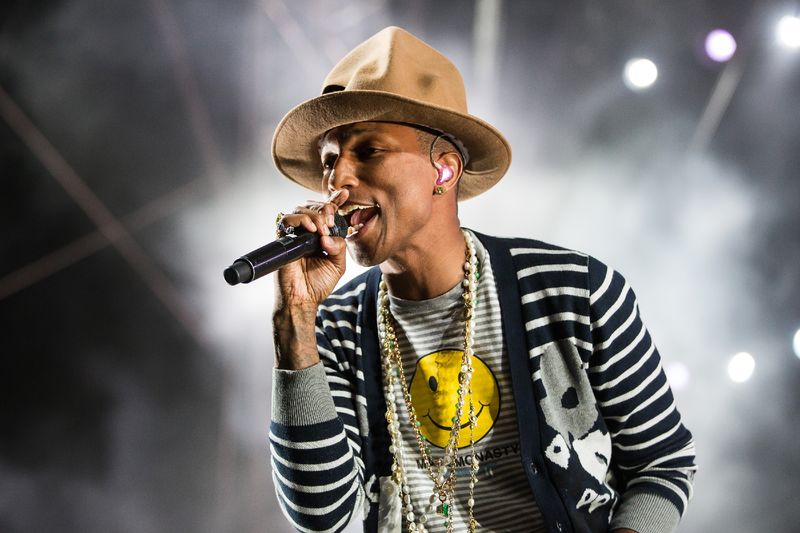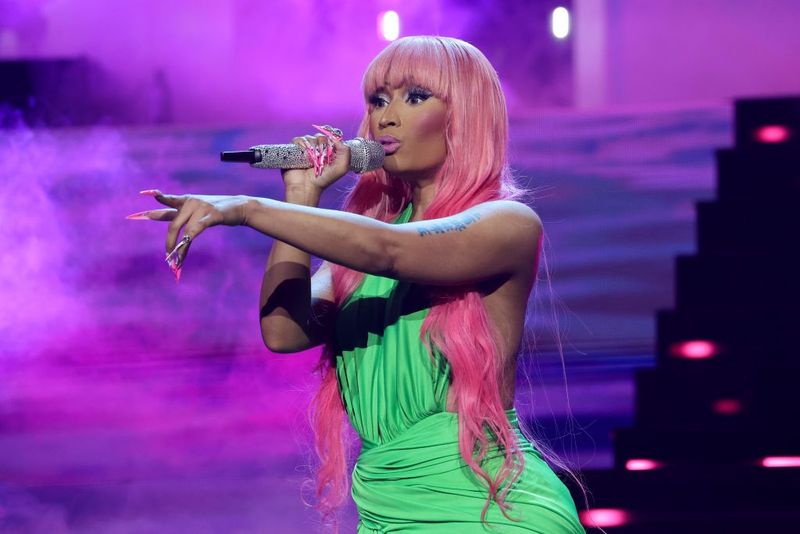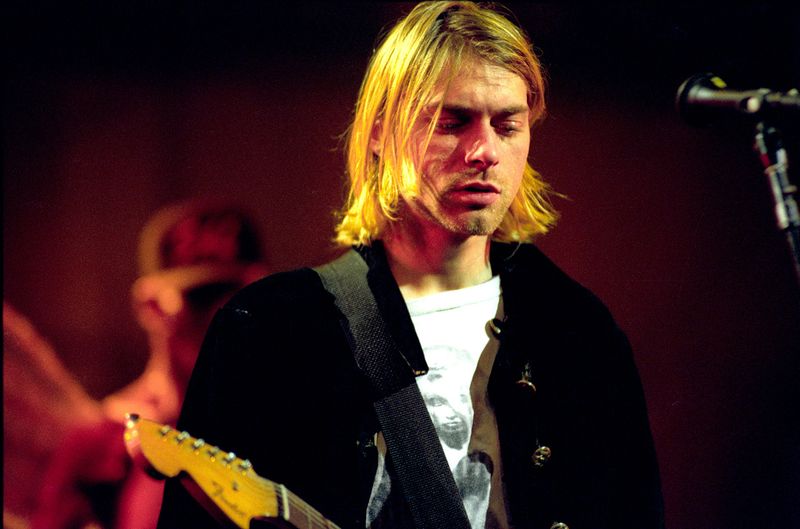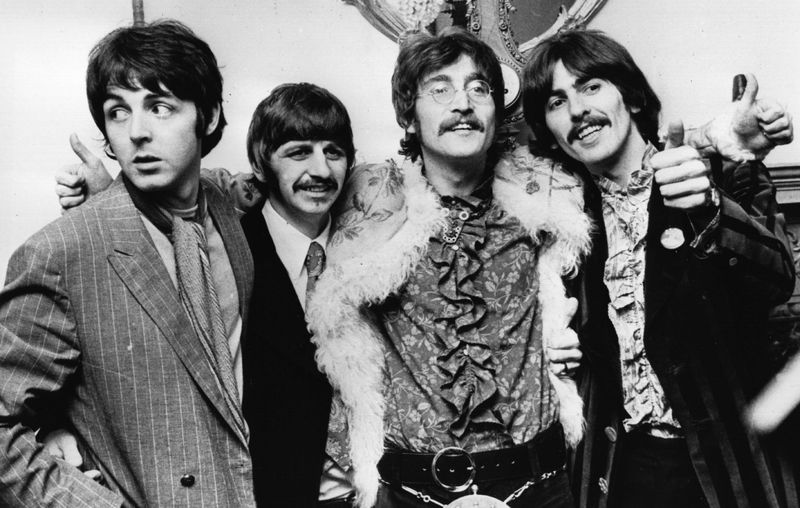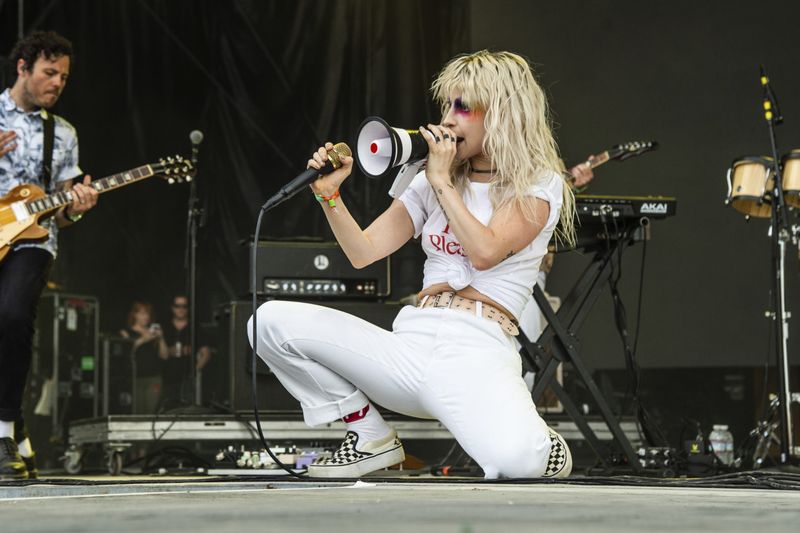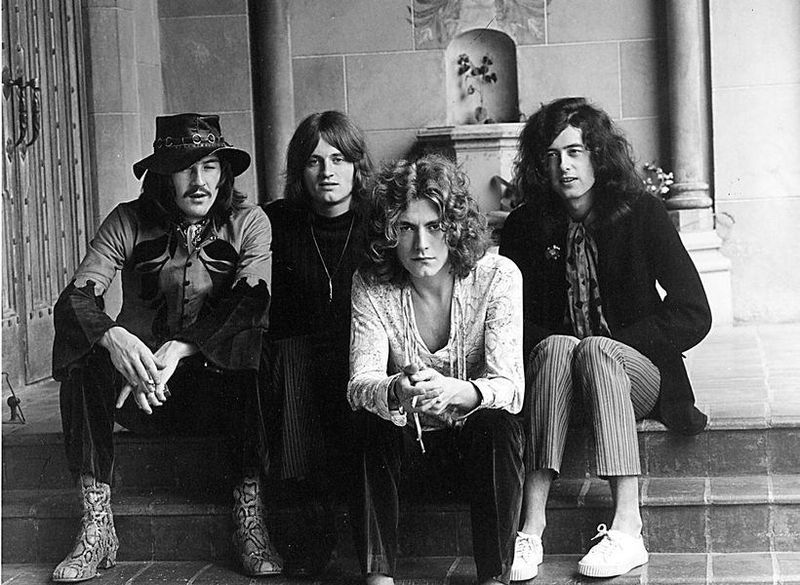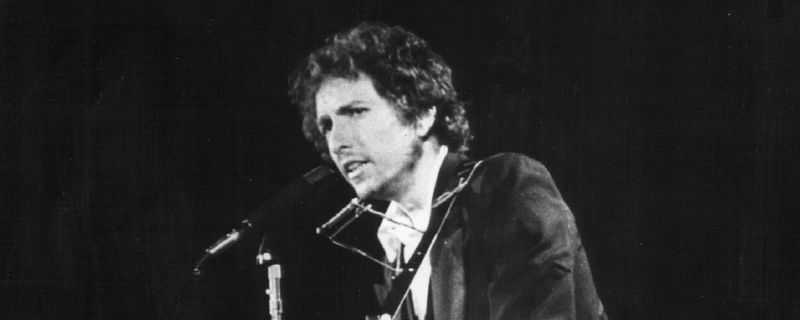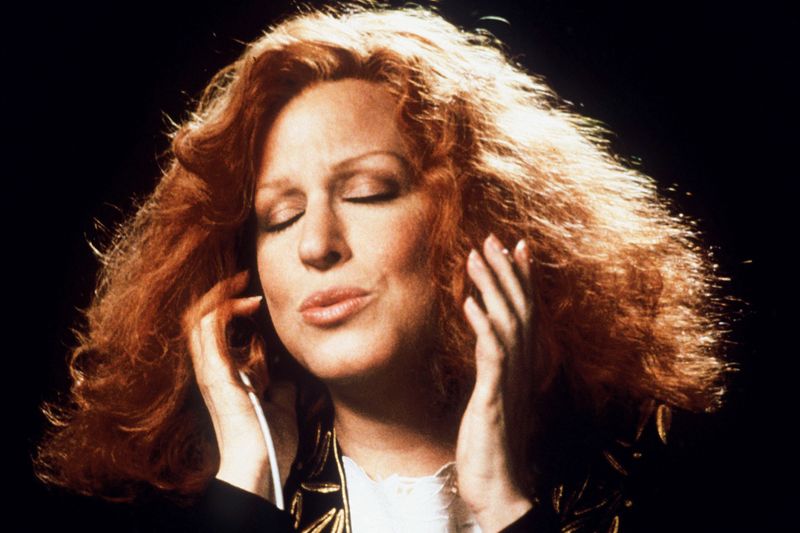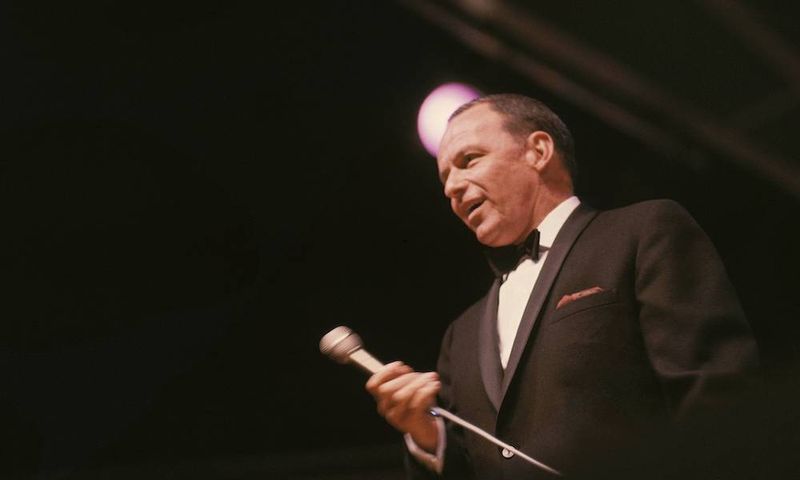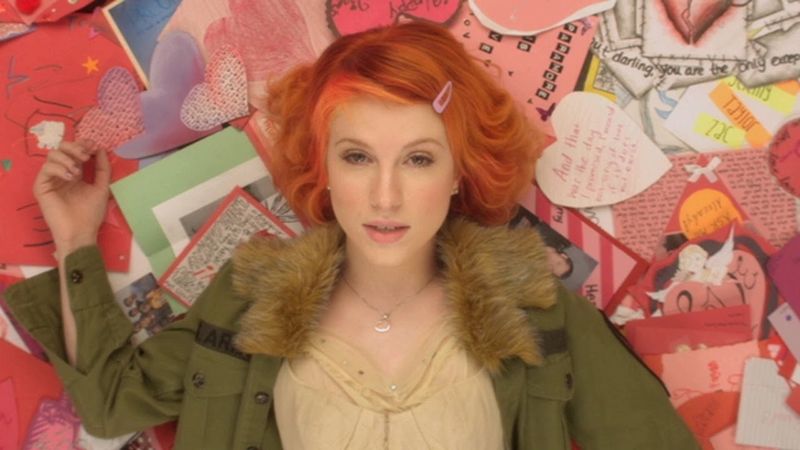While hit songs often define an artist’s career, not every musician looks back fondly on their chart-topping tracks.
Despite their success, some artists find themselves at odds with the songs that brought them fame.
In this blog post, we explore 35 hit songs that musicians have publicly expressed regret over, sharing their personal experiences and artistic conflicts.
1. Miley Cyrus – “Party in the U.S.A.”
Miley Cyrus achieved massive success with “Party in the U.S.A.,” a song that became an anthem for many. However, Miley has often expressed that the song doesn’t truly represent her musical style. She didn’t write it herself and felt that it was more a product of its time than a reflection of her artistry.
Despite its catchy tune and commercial success, Miley finds herself disconnected from the track. Her desire to distance herself from the bubblegum pop image it portrayed led her to explore different musical directions in her later career.
Many fans still adore the song, but for Miley, it remains a step in her journey rather than a destination.
2. Madonna – “Like a Virgin”
“Like a Virgin” is undeniably one of Madonna’s most iconic tracks. Yet, the queen of pop herself has expressed discomfort with the song, especially when played in public spaces. Despite its bold theme and catchy melody, Madonna feels distanced from its persona.
The track catapulted her to superstardom, but she often shares that hearing it reminds her of an era she’s moved beyond. As her music evolved, so did her personal connection to this hit.
Today, while the song is celebrated for its impact, Madonna sees it as a part of her past rather than her present musical identity.
3. Liam Gallagher (Oasis) – “Wonderwall”
“Wonderwall” remains a staple in Oasis’s legacy, yet Liam Gallagher famously dislikes it. The song’s pervasive presence has led to Liam’s vocal disdain, as he often remarks that he “can’t f—ing stand” it. To him, it’s overplayed and out of sync with his personal tastes.
Performed countless times, “Wonderwall” feels less like an artistic triumph and more like an obligation. Despite the crowd’s affection, Liam’s relationship with the song is strained.
While fans continue to cherish it, Liam sees this hit as a reminder of the pressures accompanying massive success.
4. Robert Plant (Led Zeppelin) – “Stairway to Heaven”
“Stairway to Heaven” stands as one of Led Zeppelin’s most renowned tracks, yet Robert Plant finds it burdensome. Over the years, performing the song repeatedly became tedious for him, leaving him feeling detached from its original spirit.
The iconic track, though a masterpiece, no longer resonates with Plant as it once did. His desire to evolve artistically means leaving behind the shadows of “Stairway to Heaven.”
While the song remains legendary in rock history, for Plant, it symbolizes a phase of prolonged repetition rather than ongoing inspiration.
5. Lorde – “Royals”
Lorde’s breakout hit “Royals” took the world by storm, yet she often critiques its production. To her, it sounds like a “2006 Nokia ringtone,” a sentiment reflecting her dissatisfaction with its sound.
Despite its success, Lorde feels that “Royals” doesn’t capture her evolving artistic vision. The simplicity that once defined the track now seems limiting.
As she continues to grow as an artist, Lorde views “Royals” as a stepping stone that helped launch her career, even if it doesn’t align with her current musical direction.
6. Pink – “Don’t Let Me Get Me”
Pink’s “Don’t Let Me Get Me” is a raw, emotional track, yet she wishes she could “burn that song and never sing it again.” The song’s personal nature feels burdensome to her, as it reflects a period of self-doubt she has since moved past.
Despite its authenticity, Pink’s regret stems from the vulnerability and frustration embedded in its lyrics. She prefers to focus on empowering anthems that inspire rather than dwell on past insecurities.
For Pink, this song represents a chapter closed, highlighting her journey towards self-assured resilience.
7. Lady Gaga – “Telephone”
“Telephone,” a collaboration between Lady Gaga and Beyoncé, became a massive hit. However, Gaga herself has called it her “worst song.” Listening to it is challenging for her, as she feels the final version missed the mark.
Despite its commercial success, Gaga struggles with the track’s production and execution, feeling it doesn’t encapsulate her creative intent. The song, though beloved by fans for its catchy beat, remains a source of regret for the pop icon.
Gaga’s continual artistic innovation means leaving behind tracks that no longer resonate.
8. Bruno Mars – “The Lazy Song”
Bruno Mars’s “The Lazy Song” is known for its lighthearted feel, but Bruno himself isn’t fond of it. His disdain for the song was highlighted in a tweet featuring a video of himself looking unamused.
The track’s carefree vibe contrasts with Bruno’s more polished, soulful style, leading to a disconnect. While fans enjoy the playful nature, Bruno feels it lacks the depth he strives for in his music.
For him, “The Lazy Song” represents a fleeting moment of fun rather than a milestone in his musical journey.
9. Neil Young – “Heart of Gold”
“Heart of Gold” brought Neil Young widespread acclaim, yet he refers to it as a “bore.” By the mid-1970s, he stopped performing the track live, feeling it didn’t align with his artistic direction.
Though the song’s gentle rhythm and sincere lyrics resonated with audiences, Neil’s personal connection to it waned over time. He sought to explore more varied and complex musical landscapes.
For Neil, “Heart of Gold” is a reminder of mainstream success that never quite fit his evolving identity as an artist.
10. Selena Gomez – “Come & Get It”
“Come & Get It” marked a significant moment for Selena Gomez, but she feels disconnected from the song. Describing it as a “Rihanna reject,” Selena struggles with performing it live.
The track’s pop undertones don’t resonate with her personal style, making it a challenging piece in her repertoire. Selena’s journey towards finding her authentic voice means moving past songs that feel inauthentic.
While “Come & Get It” brought her to new audiences, it’s a reminder of a phase she’s eager to outgrow.
11. Katy Perry – “I Kissed a Girl”
Katy Perry’s “I Kissed a Girl” became a breakout hit, but she wishes she could rewrite parts of it. The lyrics, she feels, inadvertently perpetuate stereotypes that don’t align with her current values.
Though the song’s catchy chorus and controversial theme captivated many, Katy’s discomfort lies in its simplistic portrayal of complex emotions. As she’s grown, so has her awareness of its impact.
For Katy, “I Kissed a Girl” remains a significant part of her history, but one she’d handle differently today.
12. Beastie Boys – “(You Gotta) Fight for Your Right (To Party!)”
The Beastie Boys intended “(You Gotta) Fight for Your Right (To Party!)” as a satire, but it was taken literally. The song became an anthem for the party culture they were mocking, leading to regret over its misinterpretation.
Aimed to be humorous, the track instead fueled behaviors they never intended to endorse. Despite its success, it conflicted with their evolving artistic identity.
For the band, it’s a reminder of how intentions can be misunderstood, transforming a parody into an unexpected emblem.
13. James Blunt – “You’re Beautiful”
James Blunt’s “You’re Beautiful” is a song many adore, yet it’s one he finds irritating. The track’s overexposure led him to feel that it annoyed not just listeners but himself, too.
While its romantic melody and earnest lyrics captivated millions, James soon tired of its constant presence. His evolving music style seeks to distance from this early hit.
Though “You’re Beautiful” remains iconic, for James, it’s a cautionary tale of how saturation can lead to artistic exhaustion.
14. Charli XCX – “Break the Rules”
Charli XCX’s “Break the Rules” was meant as a playful studio joke, yet it found its way onto the album. Charli herself calls it “the worst song ever,” a sentiment stemming from its unintended release.
Intended originally as a lighthearted creation, the song’s inclusion was more accidental than deliberate, leading to her regret. Despite its energetic vibe, it doesn’t align with Charli’s artistic aspirations.
For her, “Break the Rules” serves as a reminder of the unexpected paths creativity can take, for better or worse.
15. Lana Del Rey – “Ultraviolence”
Lana Del Rey’s “Ultraviolence” is known for its haunting lyrics, yet she feels uncomfortable with parts of it. Particularly, the line “he hit me and it felt like a kiss” has led her to stop performing that part live.
The song’s dark, complex themes once resonated but now clash with her current perspective. As Lana continues to evolve, she seeks to align her music with more empowering narratives.
For her, “Ultraviolence” is a reflection of past artistic exploration, not a current endorsement.
16. Justin Bieber – “Beauty and a Beat”
“Beauty and a Beat” brought Justin Bieber widespread attention, yet he admits he never really liked it. The song, he feels, was trendy at the time but doesn’t represent his personal taste.
While its energetic beat and youthful vibe attracted a massive audience, Justin’s musical evolution has led him to distance from such tracks. He seeks deeper artistic expression beyond pop trends.
For Bieber, this song symbolizes youthful experimentation rather than lasting artistic satisfaction.
17. Pharrell Williams – “Happy”
“Happy” became an anthem of joy for Pharrell Williams, but its overexposure turned it into an annoyance. The song’s relentless play made Pharrell feel it painted him as overly serious.
While its uplifting message resonated worldwide, Pharrell’s artistic journey seeks balance beyond a single hit. Despite its success, he feels “Happy” is an example of how popularity can overshadow nuance.
For Pharrell, the song is both a blessing and a reminder of the complexities fame brings.
18. AJ McLean (Backstreet Boys) – “If You Want It to Be Good Girl (Get Yourself a Bad Boy)”
AJ McLean has openly criticized “If You Want It to Be Good Girl,” a track he describes as “a bag of cats being hit against the wall.” Intended as a joke, its album inclusion was regrettable.
The song’s tone and execution don’t align with AJ’s musical preferences, leading to a disconnect. Despite its playful intent, AJ feels it misrepresents the band’s sound.
For him, this track is a humorous reminder of the unexpected directions creativity can lead.
19. Nicki Minaj – “Starships”
Nicki Minaj’s “Starships” was a commercial success, yet she regrets recording it. The song’s poppy vibe diverges from her rap roots, prompting her to question its place in her discography.
Despite its catchy beat and widespread appeal, Nicki feels “Starships” doesn’t represent her authentic self. Her artistic journey seeks deeper, more personal narratives beyond mainstream hits.
For Nicki, “Starships” is a reminder of how commercial success can clash with creative identity.
20. Kanye West – “Gold Digger”
“Gold Digger” stands as one of Kanye West’s most recognizable tracks, yet he has mixed feelings about it. Its popularity often overshadows other aspects of his diverse work.
Despite its infectious beat and clever lyrics, Kanye sees the song as a double-edged sword. While it brought him immense fame, it also pigeonholed him in a specific artistic image.
For Kanye, “Gold Digger” highlights the challenge of balancing commercial success with broader creative expression.
21. Taylor Swift – “Picture to Burn”
Taylor Swift’s “Picture to Burn” reflects teenage angst, yet she feels its lyrics don’t match her current maturity. The song’s straightforward expression of frustration seems too simplistic to her now.
Though its fiery tone once resonated, Taylor sees the track as a snapshot of youthful emotion she’s moved beyond. Her songwriting has evolved to embrace more nuanced storytelling.
For Taylor, “Picture to Burn” is a reminder of growth both personally and artistically.
22. Radiohead – “Creep”
Radiohead’s “Creep” became an unexpected anthem, yet the band often feels it misrepresents their musical direction. Its mainstream success overshadowed their broader, more experimental body of work.
While the song’s melancholic tone and raw emotion captivated many, Radiohead’s artistic evolution seeks to distance from its simplicity. “Creep” stands as both a blessing and a limitation in their career.
For the band, it’s a reminder of the complexities fame can bring to artistic identity.
23. R.E.M. – “Shiny Happy People”
“Shiny Happy People” brought R.E.M. commercial success, but the band sees it as a misstep. The song’s upbeat tone doesn’t align with their typical musical style, leading to regret over its release.
While the track’s catchy melody appealed to a broad audience, R.E.M. feels it doesn’t represent their artistic essence. The song’s simplicity contrasts with their usual depth and introspection.
For the band, “Shiny Happy People” is a reminder of how commercial appeal can sometimes diverge from creative authenticity.
24. Nirvana – “Smells Like Teen Spirit”
“Smells Like Teen Spirit” became a defining anthem for Nirvana, yet Kurt Cobain expressed frustration over its popularity. The song’s success overshadowed the band’s other work, leading to a love-hate relationship.
Though its gritty sound and rebellious spirit captivated a generation, Kurt felt it pigeonholed Nirvana into a specific genre. His desire to explore varied artistic paths was often hindered by the song’s legacy.
For Nirvana, “Smells Like Teen Spirit” is both a triumph and a reminder of the constraints fame can impose.
25. The Beatles – “Ob-La-Di, Ob-La-Da”
“Ob-La-Di, Ob-La-Da” brought a lighthearted vibe to The Beatles’ repertoire, but not all members were fans. Paul McCartney mentioned that John Lennon disliked it, calling it “granny music.”
Despite its playful melody, the song’s whimsical nature didn’t resonate with the band’s more experimental ambitions. The contrast between simple fun and artistic exploration led to mixed feelings.
For The Beatles, it’s a reminder of the diverse influences that shaped their iconic sound.
26. TLC – “Creep”
TLC’s “Creep” became a staple of 90s R&B, yet T-Boz expressed discomfort with its message. The song’s narrative of infidelity didn’t sit well with her, causing reservations about its recording.
Though its smooth beat and sultry vibe captivated audiences, T-Boz’s perspective highlights the tension between catchy hooks and personal values. The song’s success was bittersweet.
For TLC, “Creep” remains a significant part of their history, reflecting both triumph and internal conflict.
27. Paramore – “Misery Business”
Hayley Williams, lead singer of Paramore, has stopped performing “Misery Business” live, feeling its lyrics don’t align with her current views. The song’s narrative of rivalry and angst seems outdated to her.
Despite its energetic hooks and wide appeal, Hayley’s growth as an artist means moving beyond past conflicts. The song, once empowering, now feels limiting in its portrayal of relationships.
For Paramore, “Misery Business” is a symbol of change and evolving consciousness.
28. Machine Gun Kelly – “Rap Devil”
“Rap Devil” was a bold statement from Machine Gun Kelly, yet he’s expressed it was simply a moment in time. The track, intended as a diss, doesn’t represent his current artistic direction.
While its aggressive tone and fiery lyrics captured attention, MGK aims to explore more diverse musical paths. His evolution as a musician means leaving behind one-time provocations for broader aspirations.
For MGK, “Rap Devil” is both a milestone and a stepping stone towards a more varied future.
29. Led Zeppelin – “D’yer Mak’er”
“D’yer Mak’er” introduced a reggae-inspired sound to Led Zeppelin’s catalog, but the band felt it didn’t align with their typical style. The track’s reception was mixed, leading to regret over its release.
Despite its unique rhythm, the song’s playful tone didn’t resonate with the band’s core identity. They sought to maintain a more consistent artistic vision.
For Led Zeppelin, “D’yer Mak’er” serves as a reminder of the challenges in experimenting with new genres.
30. Bob Dylan – “Rainy Day Women #12 & 35”
Bob Dylan’s “Rainy Day Women #12 & 35” features a catchy chorus, yet he regrets its misinterpretation. The song’s meaning was often misunderstood, leading to unintended associations.
Though its lively rhythm attracted fans, Dylan’s nuanced storytelling was overshadowed by its repetitive refrain. He seeks appreciation for deeper lyrical themes beyond surface-level interpretations.
For Dylan, this track highlights the complexities of conveying artistic intent.
31. Bette Midler – “Wind Beneath My Wings”
“Wind Beneath My Wings” brought Bette Midler immense acclaim, yet she feels its popularity overshadowed other aspects of her career. The song’s emotional weight sometimes became overwhelming.
While its heartfelt lyrics and soaring melody captivated audiences, Bette’s diverse talents often went unnoticed. Her artistic journey seeks to highlight more than one defining hit.
For Midler, “Wind Beneath My Wings” is both a blessing and a challenge in balancing success with broader recognition.
32. Frank Sinatra – “Strangers in the Night”
Frank Sinatra reportedly disliked “Strangers in the Night,” calling it “a piece of s—” despite its success. The song, though beloved by fans, didn’t align with his personal tastes.
Its smooth melody and romantic lyrics, while iconic, felt too commercial for Sinatra’s evolving artistic vision. Despite its acclaim, he often sought deeper, more complex musical expressions.
For Sinatra, this track represents a disconnect between public love and personal preference.
33. Gucci Mane – “Lemonade”
“Lemonade” stands as one of Gucci Mane’s signature tracks, yet he expresses that it doesn’t reflect his current musical direction. The song’s catchy beat and carefree vibe contrast with his evolving style.
While it brought him significant attention, Gucci’s artistic growth means exploring more nuanced themes and sounds. “Lemonade,” though a fan favorite, is a part of his past repertoire.
For Gucci, it symbolizes a period of youthful exuberance rather than lasting creative fulfillment.
34. Hayley Williams (Paramore) – “The Only Exception”
“The Only Exception” showcases Hayley Williams’s softer side, yet she mentions it doesn’t align with her current artistic vision. The song’s sentimental tone feels like a phase she’s grown beyond.
Despite its heartfelt nature and widespread appeal, Hayley seeks to explore more diverse, dynamic musical paths. The track, once a highlight, now represents a chapter closed in her creative journey.
For Hayley, “The Only Exception” is a poignant reminder of both connection and change.
35. Neil Young – “Southern Man”
“Southern Man” carries a potent message, yet Neil Young has expressed that its impact sometimes overshadowed its intent. The song’s bold narrative led to misunderstandings and controversy.
Though its raw power and critical lyrics resonated, Neil’s evolving artistry seeks to engage with more nuanced discussions. The track stands as both a landmark and a challenge in conveying complex themes.
For Young, “Southern Man” highlights the balance between artistic expression and public interpretation.
